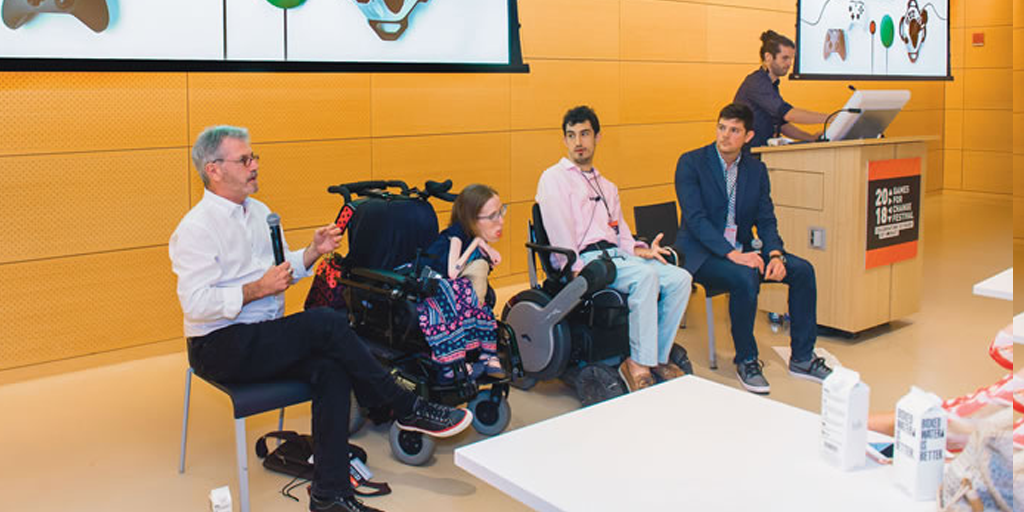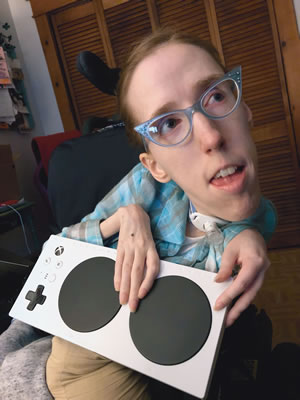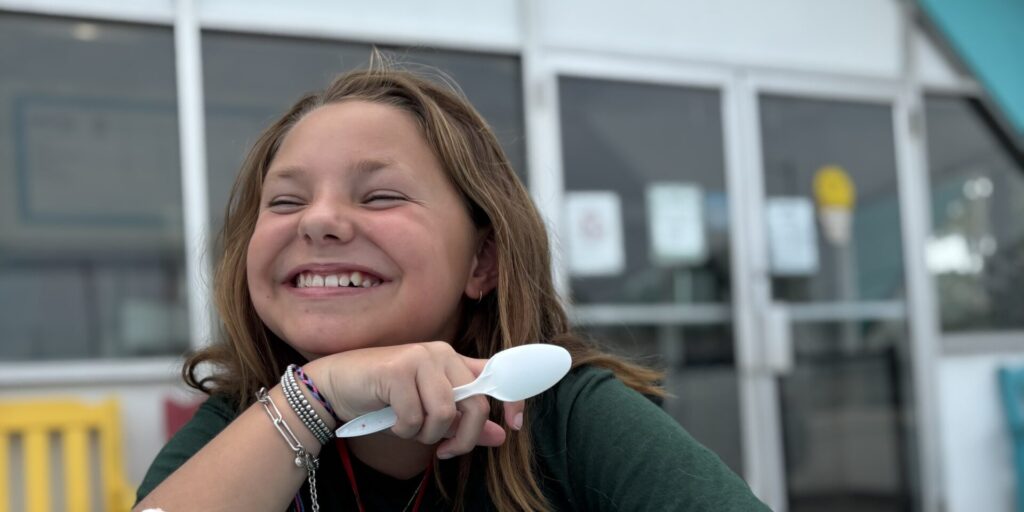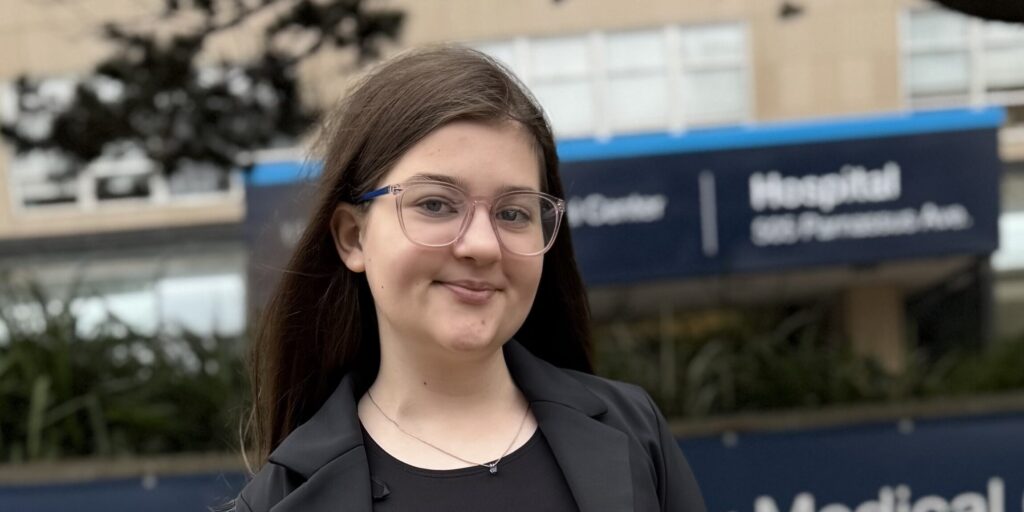
More Than a Game
By MDA Staff | Friday, October 11, 2019
A typical weekend day for me starts off with my partner or caregiver feeding me breakfast (Cheerios with milk on the side) and ends with me falling asleep to an episode of “Cutthroat Kitchen.” In between these moments, I game with friends from all over the country.
Gaming has been part of my life since the 1980s. I grew up playing on all the major gaming systems and had a constant slew of competitors in my brother and neighborhood friends. But as congenital muscular dystrophy (CMD) affected my body over the years, and as game controllers became more complex, I started having trouble keeping up with my peers.
My hands grew weaker and my wrists contracted, making it harder to hold the controllers and reach certain buttons. My first gaming system, the Atari 2600, had one button to press and one joystick. With every new system that came out, developers added more buttons and combinations. Console gaming was totally cut off to me by the time the PlayStation 3 rolled out in the early 2000s with more than 14 buttons and two joysticks.
I switched to gaming on a PC using a keyboard and mouse; its customization makes it more accessible. But I still found that many games include inaccessible content, like having to press buttons quickly or hold multiple buttons down at once.
Shared Frustrations
In 2012, I started a blog called The Geeky Gimp to tackle these issues, as well as disability representation in other media. I also expressed myself on Twitter and Facebook, and discovered there were other disabled nerds going through the same frustrations.
Until that point, I didn’t know many disabled people, let alone disabled people in gaming. I was mainstreamed in all my schooling and had little connection with disability organizations growing up. But with my blog, I was able to uncover this community that I belonged to and that I could lean on for support. I learned how game inaccessibility impacts individuals with disabilities other than my own.
Through my journey in PC gaming, I discovered Twitch, a streaming platform that allows users to share their gameplay with an audience and interact with viewers. I started watching other disabled gamers there, chatting with them about the latest titles, or just discussing our lives. I started my own channel on Twitch to create a safer place for anyone to come in, relax and enjoy the company. A lot of people outside of gaming think it’s silly and pointless to watch other people play games, but it’s not about the games. It’s about the communities we build around them, no different than a bunch of friends getting together to watch football.
Positive Communities
Online communities are especially important for disabled people who may not be able to leave the house easily because they can’t drive and public transportation is inaccessible. Or for people who have trouble being social when they have a mental illness. Or for those of us who deal with chronic pain and fatigue and find chatting from bed is easier than going out.
Online socializing gets lambasted in the media, and sometimes that critique is warranted; bullying, hate speech and other negatives are easily shareable on social media. But what many fail to consider are the exceptional, supportive and positive communities fostered by disabled people and their abled friends. If it wasn’t for the friends I’ve made through gaming, I would lead a more isolated life.
The original goal of my blog and Twitch channel was to educate the gaming industry on accessibility and disability representation. That goal has been met tenfold because it led to my work consulting with tech leaders to make their products more accessible and inclusive, including playtesting and promoting the new Xbox Adaptive Controller. What I did not expect from my work was the true friendships I’ve built online. I did not expect to be playing on console again with my brother, and now his daughter.
Gaming and, more importantly, disability in gaming, has transformed my life for the better.
Erin Hawley, 35, lives in Keyport, New Jersey. She is a writer, accessibility consultant, sensitivity reader and digital content producer. She enjoys video and tabletop gaming, “Star Trek,” and obsessing over Mariah Carey. You can find her @geekygimp on Twitter, @thegeekygimp on Instagram and vlogging as The Geeky Gimp on YouTube.
Disclaimer: No content on this site should ever be used as a substitute for direct medical advice from your doctor or other qualified clinician.




